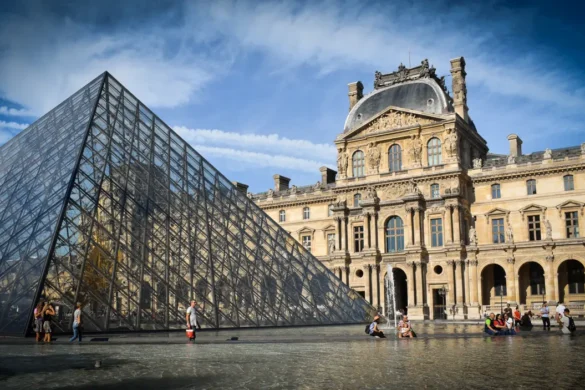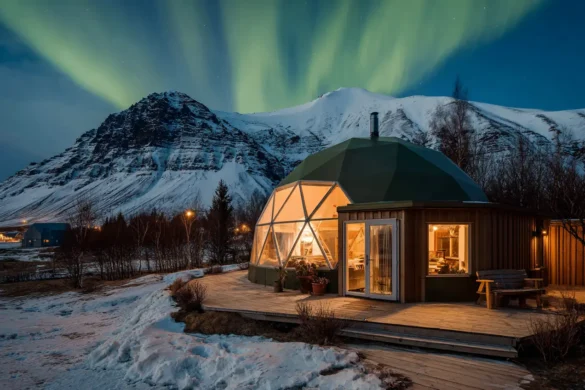Gabon left me absolutely speechless. The moment I watched a family of forest elephants emerge from the mist at Loango National Park, walking right onto that pristine beach like they owned the place, I knew I was experiencing something extraordinary. I must have taken a hundred photos, but none of them capture the pure magic of seeing these giants stroll along the Atlantic Ocean.
After exploring the most beautiful places in Gabon, I can tell you this country is unlike anywhere else in Africa. From cruising through the winding waterways of Lopé National Park where mandrills swing through ancient rainforest, to watching humpback whales breach in the crystal clear waters off Port Gentil, every moment feels surreal. Get ready, because these 12 spots are about to show you why Gabon is Africa’s best-kept secret.
Absolutely Breathtaking Places to Visit in Gabon
Eager to explore the most beautiful spots in Gabon? As we’ve highlighted, there’s a diverse range of options for every type of traveler. Continue reading to uncover the breathtaking landscapes that Gabon has to offer.
Are you in search of vibrant city life and rich cultural experiences? Or perhaps you’re more inclined towards a peaceful retreat surrounded by nature? Regardless of your preferences, Gabon has something to suit your travel needs. Here are all the must-see locations in Gabon that you should add to your list:

1. Akanda National Park
Akanda National Park honestly delivers way more than you’d expect from a quick boat trip from Libreville. This 540-square-kilometer coastal gem sits right on Mondah and Corisco bays, making it crazy accessible for day trips. The mangrove channels here are absolutely stunning – I spent hours weaving through them in a traditional pirogue watching kingfishers dart past like living jewels.
What really blew me away were the sunset boat tours. There’s something magical about watching the estuary turn golden while hundreds of migratory birds settle in for the night. The park protects some seriously important stuff – we’re talking 2.5% of Africa’s entire mangrove area combined with neighboring Pongara. You’ll spot everything from sea turtles dragging themselves onto pristine beaches under moonlight to rare orchids that only grow here because of the extra moisture from the sea.
Tour operators in Libreville run day trips for around €30-50, and honestly, it’s one of the best wildlife experiences you can have without sleeping in the jungle. The birdwatching alone is worth the trip – I saw species I’d never encountered anywhere else in Africa.

2. Fernan Vaz Lagoon
Fernan Vaz Lagoon is where you’ll have the most profound wildlife encounter of your trip, guaranteed. This massive inland water system connects to the Atlantic and creates this otherworldly maze of channels that’ll make you feel like you’re exploring uncharted territory. The star attraction is Evengué Island Gorilla Sanctuary, where you can watch orphaned western lowland gorillas rebuilding their lives. I’m not exaggerating when I say watching these incredible beings interact up close changed my perspective on wildlife conservation forever.
The lagoon itself is teeming with life – hippos surface dramatically in the calm waters while crocodiles sun themselves on muddy banks. Traditional fishing villages dot the shorelines, and the locals are genuinely welcoming if you want authentic cultural exchanges. Loango Lodge offers the best base for exploring, with lagoon views and wildlife excursions included.
You’ll need at least two full days to properly explore this vast waterway system. Early morning pirogue trips are absolutely magical when mist hovers over the water and wildlife activity peaks. Book through tour operators in Port-Gentil – most packages run around €400-500 for multi-day experiences including accommodation and guided excursions.

3. Ivindo National Park
Ivindo National Park is where you earn serious adventure bragging rights. This UNESCO World Heritage site protects pristine rainforest that feels genuinely untouched by modern civilization. Getting to Kongou Falls involves boats and hiking, but the payoff is massive – we’re talking about what many call Africa’s most beautiful waterfall. This 3-kilometer-wide cascade thunders through virgin forest with virtually zero other visitors around.
I spotted fresh elephant tracks just minutes from our forest camp, and the patient wildlife watchers in our group had incredible sightings during multi-day excursions. The Trans-Gabon Railway gets you to Booué station, then it’s a 5-hour drive to Makokou followed by a 3-hour pirogue journey to the falls. Yeah, it’s an expedition, but that’s exactly what makes it special.
The park shelters forest elephants, gorillas, and over 430 bird species. Mingouli Falls offers another spectacular cascade that’s rarely seen by outsiders. Be prepared for basic camping conditions – there’s no electricity and you’ll be eating freshly caught fish around campfires. The journey costs around €325 for a 3-day trip, but it’s honestly a once-in-a-lifetime experience.

4. Libreville
Skip the overcrowded African capitals and check out Libreville instead. Gabon’s laid-back seaside capital mixes French colonial charm with vibrant African culture in a way that feels authentically relaxed. Start at the National Museum of Arts and Traditions – the Fang masks collection alone justifies the visit, and you’ll actually understand the diverse ethnic groups that make Gabon special.
Mont-Bouët Market is sensory overload in the best way possible. Vendors hawk everything from traditional medicines to handcrafted goods, and I discovered surprisingly serene city beaches where locals gather for weekend football matches and fresh seafood. The imposing wooden architecture of St. Marie Cathedral provides cool sanctuary from midday heat.
✈️ My #1 Hack for Cheap 2026 Flights:
It’s January, so flight prices are climbing fast—but you don't have to pay them. I’m currently seeing roundtrips to Europe for under $300 (deals you won’t find on Google Flights).
Step 1: Join Going.com's Free Plan here. It takes 10 seconds and requires no credit card.
Step 2: If you're doing a big trip this year, grab the 14-day free trial of Premium. You can even use my code JON25 for 25% off.
Seriously, this is the single best money-saving tool I’ve used in 8+ years.
👉 Send me cheap 2026 flightsWhat really surprised me was how safe and walkable the city feels compared to other West African capitals. Seafood restaurants along the waterfront serve amazing fresh catches with French-influenced preparations that’ll spoil you for other coastal cities. The Radisson Blu Okoumé Palace offers solid accommodation with ocean views, but honestly, you could explore most of Libreville‘s highlights in two days before heading into Gabon’s incredible wilderness areas.
Airport transfers and city tours through local operators cost around €25-50 per day.

5. Loango National Park
Loango National Park is where Instagram dreams come true with wildlife shots you literally can’t get anywhere else on Earth. This is the place famous for forest elephants strolling pristine Atlantic beaches and “surfing hippos” that venture into ocean waves. I watched in complete amazement as elephants emerged from forest edges onto golden sand beaches – it looks so surreal that people don’t believe the photos are real.
The park’s nickname “Africa’s Last Eden” isn’t marketing hype. You can explore beaches, forests, savannas, and wetlands all in a single day. During certain seasons (January-February), hippos actually head into ocean waves, creating some of the most unique wildlife footage on the planet. The extensive Iguéla Lagoon attracts sport anglers pursuing massive tarpon.
Loango Lodge and satellite camps provide different experiences, from luxury tented accommodations to forest camps. Gorilla tracking is available with the habituated Atananga troop, but visits are restricted to 4 times weekly with only 4 guests maximum. Two-night packages run around €870 and include boat transfers, activities, and meals. The 35-minute flight from Libreville to Port-Gentil plus 3.5-hour transfer is totally worth it for wildlife experiences that’ll ruin other safaris for you.

6. Lopé National Park
Lopé National Park is photographer heaven and your best shot at seeing mandrills in the wild. This UNESCO site presents a fascinating landscape where forest meets savanna in an “ecological transition zone” that creates incredible photo opportunities. The massive mandrill gatherings here are straight-up National Geographic material – these colorful primates sometimes assemble in groups exceeding 1,000 individuals!
I joined researchers tracking mandrills and it was honestly my most memorable wildlife encounter in Central Africa. The park shelters forest elephants, buffalo, and numerous monkey species along forest edges. History lovers will dig the ancient rock engravings dating back thousands of years. The convenient Trans-Gabon Railway from Libreville makes this wilderness surprisingly accessible – the train departs at 4 PM and arrives at Lopé at 1 AM.
Moabi Tented Camp offers classic safari-style accommodations with paraffin lamps and dining under the stars. July-August is prime time for mandrill tracking during mating season when huge groups congregate. Multi-day packages through Gabon Wildlife Camps run around €500-700.
For perfect shots, climb viewpoints at sunrise when mist wraps around forest islands rising from golden savannas. Just be prepared for 5+ kilometer hikes on rough terrain.

7. Makokou & Kongou Falls
Makokou is your gateway to one of Africa’s most magnificent and untouched waterfalls. Kongou Falls will seriously awaken your adventurous spirit with its thunderous 56-foot plunge across a 3,200-foot width – it’s basically nature showing off. Getting there requires effort though: boat trip from Makokou plus guided trek through dense jungle, but that journey became my favorite part.
We spotted forest elephants along overgrown paths, and the surrounding Ivindo National Park showcases extraordinary biodiversity with gorillas and countless bird species making surprise appearances. Local guides from Makokou town are absolutely essential for navigating this challenging terrain – don’t even think about attempting this without them.
The rustic forest camp near the falls offers basic but solid wooden huts with corrugated iron roofs. My hut had a veranda, double bed with mosquito net, and that’s pretty much it – but honestly, you’re here for the waterfalls, not luxury amenities. Plan two full days minimum for this expedition.
The journey costs around €325 for 3 days through operators like Gabon Right Routes, though some travelers report mixed experiences with tour organization. Bring extra water and snacks – this is serious wilderness territory where you can’t rely on fully provisioned tours.

8. Mayumba National Park
Mayumba National Park hosts the world’s most epic turtle nesting spectacle, and I’m talking about genuinely life-changing wildlife encounters. This remote coastal paradise creates a slender peninsula with wild Atlantic waves on one side and the tranquil Banio Lagoon on the other. Between November and April, up to 550 leatherback turtles can emerge from the sea in a single night across the 80 kilometers of protected coastline.
I still get goosebumps remembering guided night walks during nesting season as these ancient giants lumbered onto beaches under moonlight. We’re talking about 30% of the world’s leatherback population transiting through Gabon, with Mayumba hosting the largest concentration. During whale migration season (July-September), humpback whales breach offshore and are visible even from the beach.
Getting here requires commitment – flights from Libreville to Gamba or Tchibanga, then bush taxi transfers that can take 5+ hours. There’s limited accommodation in Mayumba town, but local guesthouses provide basic comfort.
December and January offer peak turtle nesting – honestly the perfect winter getaway with balmy tropical breezes and incredible wildlife just meters away. Tour packages including transfers and turtle watching run around €400-600.

9. Minkébé National Park
Minkébé National Park represents the ultimate wilderness bragging rights that very few travelers can claim. This challenging-to-access sanctuary spans nearly 3,000 square miles of undisturbed rainforest harboring incredible densities of forest elephants alongside gorillas, chimpanzees, and leopards. The mysterious forest clearings called “bais” act as wildlife gathering places where I once watched normally shy creatures interact in their natural element.
The distinctive Minkébé Rock formations create landscapes that genuinely feel frozen in prehistoric times. This absolutely isn’t for casual tourists – reaching Minkébé requires serious preparation, experienced local guides, and advance permits through ANPN. We’re talking multiple days of hiking through dense forest with basic camping conditions.
The reward? Experiencing one of Earth’s last truly wild places where nature exists exactly as it has for millennia. Recent reports suggest limited tourism infrastructure, with some guides noting that mandrill tracking programs have been suspended due to equipment issues.
If you’re serious about this expedition, contact conservation organizations like WCS or Adventures Sans Frontières well in advance. Expect to pay €500+ per day for guided expeditions, and honestly, you’ll need to be in excellent physical condition. This is wilderness travel at its most authentic and challenging.

10. Pointe Denis Beach
Pointe Denis Beach offers the perfect escape from city life that’s just 30 minutes by boat from Libreville. This white sand peninsula feels worlds away despite its proximity, and the calm waters provide perfect swimming while more adventurous visitors try windsurfing, jet skiing, or deep-sea fishing. I loved how locals treat this as their weekend playground rather than a touristy destination.
The beachside restaurants serve incredibly fresh seafood with French-influenced preparations that’ll make you want to extend your stay. My perfect afternoon here involved grilled fish, cold beer, and watching locals play football on the beach while dolphins played in the distant waves. During migration season, you might even spot humpback whales from the shoreline.
Park Inn by Radisson Libreville offers modern accommodations with Gulf of Guinea views as your base, though day trips work perfectly fine. Boat transfers run regularly throughout the day for around €15-20 round trip.
The beach offers protected swimming areas, making it family-friendly, while the sunset views across the water toward Libreville are genuinely spectacular. Local vendors sell grilled fish and cold drinks, and the whole vibe is refreshingly un-commercial. It’s exactly the kind of place where you plan to stay for a few hours and end up spending the entire day.

11. Pongara National Park
Pongara National Park delivers one of Africa’s most surreal wildlife spectacles – forest elephants casually strolling along pristine beaches. This accessible park sits just a boat ride from Libreville, making it perfect for wildlife experiences without major expedition planning. The 20 miles of undeveloped shoreline provide critical nesting grounds for endangered leatherback turtles, and walking alongside these ancient giants as they lay eggs by moonlight was honestly my most treasured wildlife encounter.
The park showcases the remarkable meeting point of ecosystems that makes Gabon special. Inland areas feature extensive mangrove systems teeming with monkeys, buffalo, and over 150 bird species. Pongara Lodge offers eco-friendly accommodations between rainforest and ocean – it’s rustic but comfortable with decent meals and guided activities.
November through April is turtle nesting season, while June-September provides drier conditions for hiking and boat tours. Two-night packages run around €870 including transfers and activities. The boat tours through winding waterways reveal complex coastal wetland ecology that’s fascinating even for non-nature nerds.
I particularly enjoyed the contrast between watching elephants on beaches in the morning and exploring mangrove channels by pirogue in the afternoon. It’s like getting multiple African experiences compressed into one easily accessible location.

12. Tropicana Beach Gabon
Tropicana Beach captures authentic local vibes without requiring expedition-level planning. This energetic coastline transforms every weekend as locals bring music, food, and that infectious Gabonese joie de vivre that makes travel memorable. The beach offers sheltered swimming areas perfect for families, while seaside restaurants serve everything from traditional dishes to international cuisine.

I joined an impromptu dance circle within minutes of arriving – that’s the kind of welcoming atmosphere that makes Tropicana special. Unlike remote coastal areas requiring boats and guides, this beach’s accessibility makes it perfect for experiencing local culture in a relaxed setting. The protected coves provide safe swimming, and you’ll find plenty of shade under palm trees.
Weekend cultural performances showcase traditional music and dance, giving visitors authentic insights into Gabonese traditions. Local vendors grill fresh fish and serve cold Palm beer – perfect for lazy afternoon beach sessions. The Abricó Beach Hotel offers elegant oceanfront accommodations if you want to make this your Libreville base.

For travelers with limited time in Gabon, spending an afternoon here offers invaluable cultural insights alongside refreshing ocean breezes. It’s about 15 minutes by car from central Libreville, making it an easy addition to any itinerary. Entry is free, and meals typically cost €5-10.

Global Viewpoint is a personal blog. All content is for informational and entertainment purposes only and does not constitute professional financial, medical, or legal advice.





